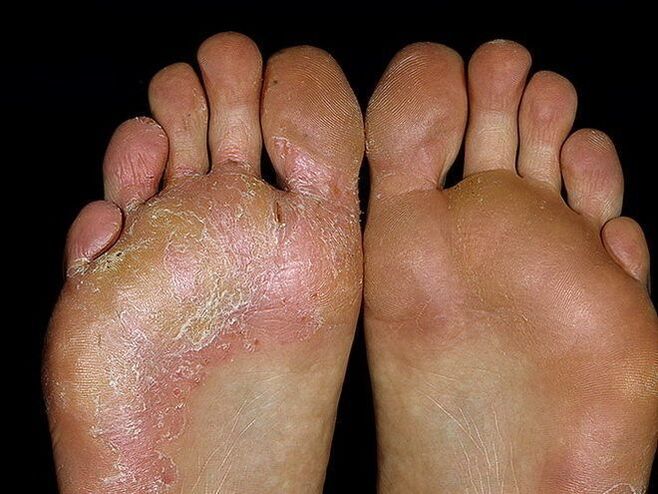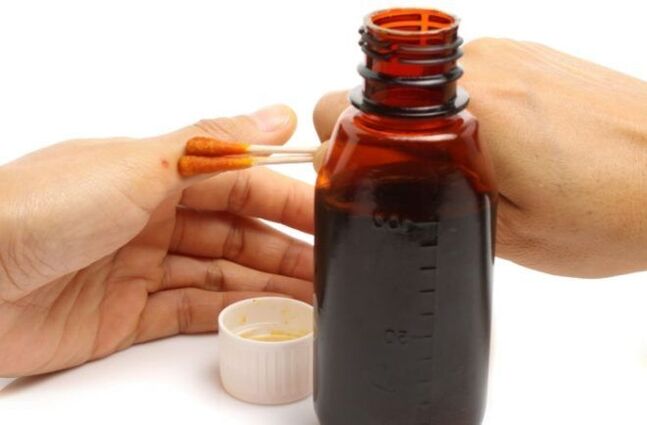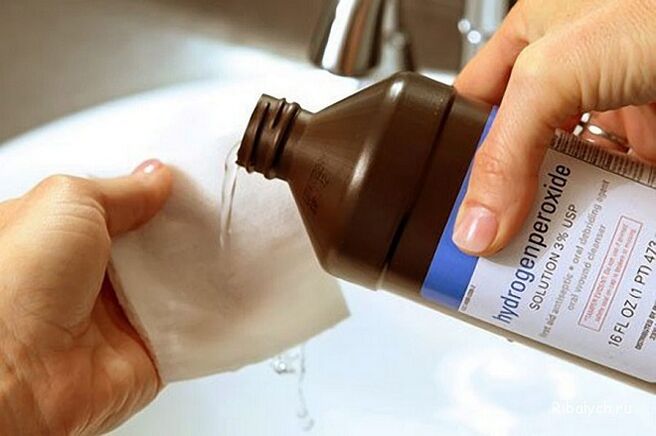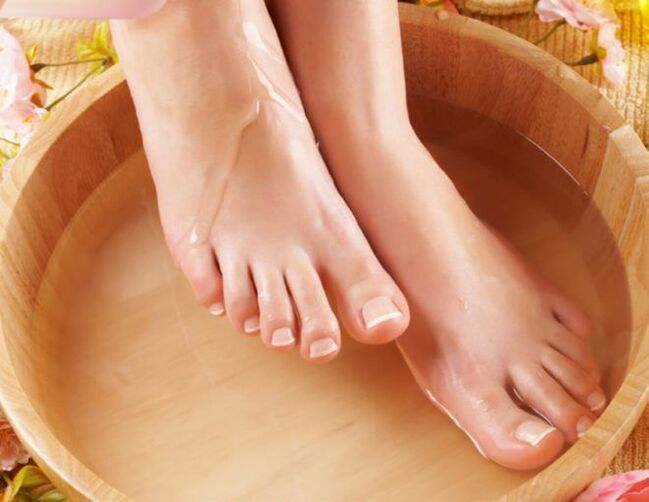Mycosis is a common skin disease caused by pathogenic microorganisms. It can be spread through direct contact with a sick person, in public places, where it is customary to use shared shoes, towels (in the bathroom, sauna). Traditional medicine offers many ways to get rid of this disease. In parallel, it is also worth treating the fungus on the legs at home with the help of improvised means.
The main symptoms
A yeast infection in the legs manifests as follows:
- Redness of the skin and itching, which is initially felt in the interdigital area. In addition, pathological changes in the skin are observed throughout the sole.
- Severe peeling of the skin due to its dryness, which is accompanied by irritation. Small cracks appear, which gradually turn into deep wounds, accompanied by painful sensations. With an advanced form of infection, the outside of the foot can also be affected.
- The progressive disease is accompanied by the formation of small itchy bubbles that appear acutely between the toes and on the sole. When opened, they lead to the formation of sores, itching and pain.

Folk remedies to fight infections.
In the feet of a person there is an environment with a slightly acidic reaction. For this reason, the fungal bacteria that surround a person have no chance to penetrate the epidermis. The body's natural defenses are weakened when immunity wanes and a warm, humid environment is created for pathogens.
At such times, the skin of the feet is weakened and microsporias easily settle on it, beginning their active life. The use of drugs for treatment prescribed by a doctor does not always give a positive result, and you need to undergo repeated therapy according to a revised scheme. In such a situation, it is advisable to use traditional medicine and treat and prevent foot fungus at home.
The benefits of iodine
This pharmaceutical substance has a powerful antiseptic effect, it is a strong halogen, which provides a high folding of protein components. Due to the fact that pathogenic fungal spores consist of proteins, iodine neutralizes them in a short period of time and prevents the recurrence of the disease. You need to know that:
- During treatment, iodine can cause an allergic reaction, so it is recommended to perform a test on healthy skin before use (apply 1 drop to the curve of the elbow).
- The described drug shows high efficiency in the early stages of the onset of infection, since the mechanism acting on proteins works only on the surface of the skin.
- If applied too often to the affected areas of the legs, iodine can cause burns.

The iodinated alcohol solution has a high concentration. It is recommended to dilute it before starting the treatment with regular medical alcohol at a ratio of 1: 1. The resulting product is applied directly to the affected areas of the legs, previously steamed in warm water and dried with a cloth. The course of treatment should not exceed 1 week; to achieve a positive result, it is necessary to use drugs that fight infections in parallel.
Hydrogen peroxide
This substance is known for its antiseptic properties, it is a natural regulator of important metabolic processes that occur in the human body. This justifies the frequent use of hydrogen peroxide in treating fungal foot infections at home.
It is necessary to prepare a 3% peroxide solution, on its basis, make applications for 10-15 minutes. Before the procedure, the infected skin is steamed and dried, and the scaly epidermis is removed. A cotton swab is moistened with a liquid and applied to the focus of the disease, firmly fixed. At the end of the procedure, the application site is wiped with a clean cloth, but not washed. To obtain a positive result, it is necessary to carry out treatment for at least 5 days.

Celandine
Celandine is known for its medicinal qualities and is widely used in folk medicine. This plant is especially effective in treating all kinds of skin damage, infections. The secret lies in the large amount of saponins and alkaloids that its juice contains.
Various baths, decoctions and infusions of celandine are known, which in a short time help to get rid of infections on the skin of the legs. The fresh juice of a freshly plucked plant cures well. To quickly get rid of mycosis, it is advisable to simultaneously use trays with herbal decoction, and then treat skin lesions with fresh celandine juice.
Preparation of a decoction for the bath: 500 g of fresh grass or 100 g of dry grass should be poured with 1 liter of boiled water. The resulting infusion is used diluted with hot water at a 1: 1 ratio. Foot baths should be performed at night for 10 days. At the end of the procedure, the damaged areas of the legs are dried, the dead skin is cleansed, and the treatment with fresh plant juice is carried out.
Apple vinager
An acidic environment is destructive in treating pathogens of fungal infections. In the initial stage of the skin disease, when the parasitic colonies of the infection have not yet penetrated too deeply into the epidermis, apple cider vinegar can be an excellent remedy for the destruction of athlete's foot.
Apple cider vinegar contains organic substances that can destroy pathological formations and infections in a short time. Appliques are applied to the affected areas of the skin, while it is undesirable to touch their healthy areas. In case of severe damage to the foot, it is recommended, after bathing, to treat intact skin abundantly with baby cream and put on a tight sock, previously moistened with vinegar.
soda
Baking soda has a disinfecting and emollient effect, but it is rarely used in its pure form to treat fungal infections of the skin of the feet at home. A positive preventive result is achieved with the combined use of soda with tar or laundry soap, salt.
Baths for fungal skin infections based on sea salt and soft drinks have a regenerating and disinfecting effect on the epidermis like natural sea water. The effect will be more complete if you add a few drops of iodine to the water. Proportion: 2 liters of hot water, 3 tablespoons of dry substances. Feet with diseased skin foci are steamed 2 times during the day. The course of treatment is 5-7 days.

Preparation for the treatment of a soap bath: 3 liters of hot water, in which half a bar of crushed soap is dissolved. Here also add 5 tablespoons of baking soda. After the water has cooled down, the feet should be rinsed and dried completely. The disease will recede in a week. But at the same time, it is necessary to create conditions under which the skin fungus does not return and does not begin to reappear at an even higher rate.
Acetic acid
Undiluted, the substance can damage the integrity of the skin; it can be diluted with freshly squeezed carrot juice. Carrots contain a large amount of phytoncides and carotene, which help heal the affected skin. Vinegar also contributes to the complete elimination of fungal outbreaks on the legs.
Applications created from a carrot vinegar solution (1: 1 ratio) help well with the treatment. You should withstand them no more than 10-15 minutes. It is preliminarily recommended to do a foot bath, which will soften the hardened epidermis, thus providing the drug with unhindered access to pathogens.
Treating foot fungus with home remedies is an effective and efficient therapy. In this case, you need to carefully monitor your own diet, adhere to a balanced diet. The body must receive sufficient amounts of nutrients, a complex of vitamins that support the immune system at the proper level. Only in this case, the fight against the fungus that affects the skin of the legs will be quick and positive. Avitaminosis and weakened immunity are the precursors of infection by pathogenic microorganisms.
Treating mycoses of the feet with folk remedies is safe for human health, provided that all rules and instructions are fully followed. Traditional medicine advice, as well as complex drug therapy, will help to get rid of fungal diseases and prevent their recurrence.





























